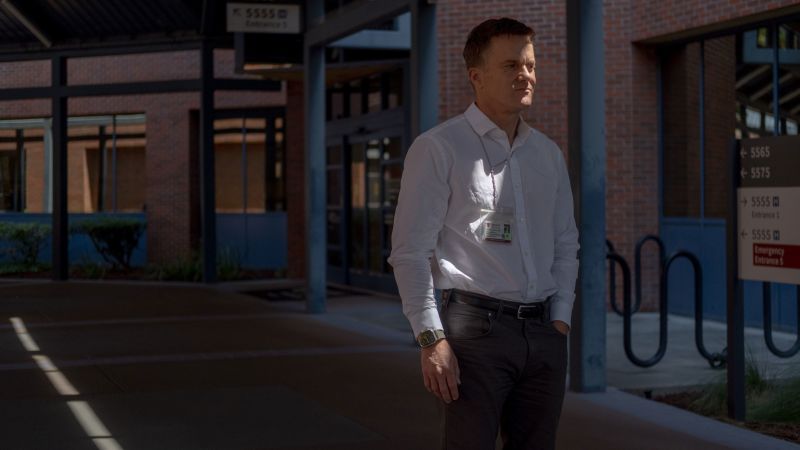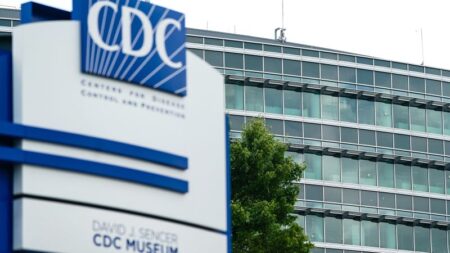Dr. Jake Scott is a prominent figure in the battle against misinformation surrounding vaccines, specifically during the ongoing challenges brought to light by the Covid-19 pandemic. As he navigates the complexities of his demanding job as an infectious disease physician at Stanford Health Care’s Tri-Valley hospital in Pleasanton, California, Scott finds himself confronting a second pandemic. This second pandemic is not caused by a virus, but rather by disinformation and misconceptions concerning vaccines. This battle for public trust and accurate information is deeply personal for Scott, who often sacrifices sleep to dedicate himself to correcting the record online and through his writings.
In a time when health officials, especially those from the U.S. Department of Health and Human Services, are making controversial statements regarding vaccines, Dr. Scott has taken it upon himself to react swiftly. His posts are not only insightful but have garnered millions of views, illustrating the public’s yearning for accurate information. He frequently addresses the claims made by individuals like Robert F. Kennedy Jr., who has been known for his anti-vaccine rhetoric. Scott’s insights and evidence-based corrections have resonated widely, and he has witnessed his follower count on social media double as more individuals seek clarity on this contentious issue.
Dr. Scott’s concern stems from witnessing the tangible consequences of vaccine misinformation. He notes the declines in kindergarten vaccination rates and the disturbing resurgence of vaccine-preventable diseases such as measles and whooping cough. The implications of this misinformation can be severe, and Scott is acutely aware that decisions made based on fear rather than facts can lead to devastating outcomes. He has personally experienced the tragedy of losing patients who opted against vaccination, underscoring the life-and-death stakes involved in this issue.
In Scott’s view, the misinformation epidemic runs parallel to the Covid pandemic. Despite the vast progress made in combating the virus through vaccination, the propagation of disinformation remains a significant challenge that has not been addressed effectively. This ongoing struggle, particularly intensified during the Trump administration, presents a unique dilemma for public health professionals like Scott, who strive to uphold the integrity of scientific information amidst a landscape saturated with falsehoods.
The unsettling history of misinformation affecting public health highlights the urgency of Scott’s mission. In 2020, he found himself at the forefront of the Covid-19 crisis, treating a multitude of patients suffering from severe symptoms. As he faced overwhelming challenges and loss, the emergence of vaccines felt miraculous, drastically changing the patient outcomes he witnessed daily. However, even amid the vaccines’ rollout, an “infodemic” emerged—a term used to describe the flood of inaccurate information that accompanied the health crisis.
Scott’s personal journey, marked by a remarkable trajectory from a youth with humble beginnings and an array of odd jobs—including one in a bike shop frequented by iconic figures—to becoming a physician, reflects his commitment to service and knowledge. Initially, he pursued interests in literature and social support before ultimately realizing his passion for medicine while working at Planned Parenthood. This experience revealed his talent for connecting with patients during vulnerable moments and shaped his belief in the importance of empathetic care.
As Dr. Scott continues to tackle problems wrought by misinformation, he maintains a steadfast focus on his responsibilities as a physician. His steadfast commitment, even in the face of online backlash from naysayers, emphasizes his dedication to the truth and public health. Furthermore, he emphasizes the necessity of evidence-based practices and strives to instill a sense of clarity and understanding regarding vaccines and other critical public health issues.
Ultimately, Dr. Scott’s story captures not only his journey through medicine and health but also the vital role that clear communication and accurate information play in public health infrastructure. Scott’s efforts to counter misinformation serve as a rallying call for healthcare professionals and the community at large to engage proactively and accurately in discussions concerning health, safety, and the implications of vaccine hesitancy. As he continues to rise to the occasion, Dr. Scott is indeed a testament to the resilience of those dedicated to healing and the power of truth in battling confusion and fear in public discourse.












